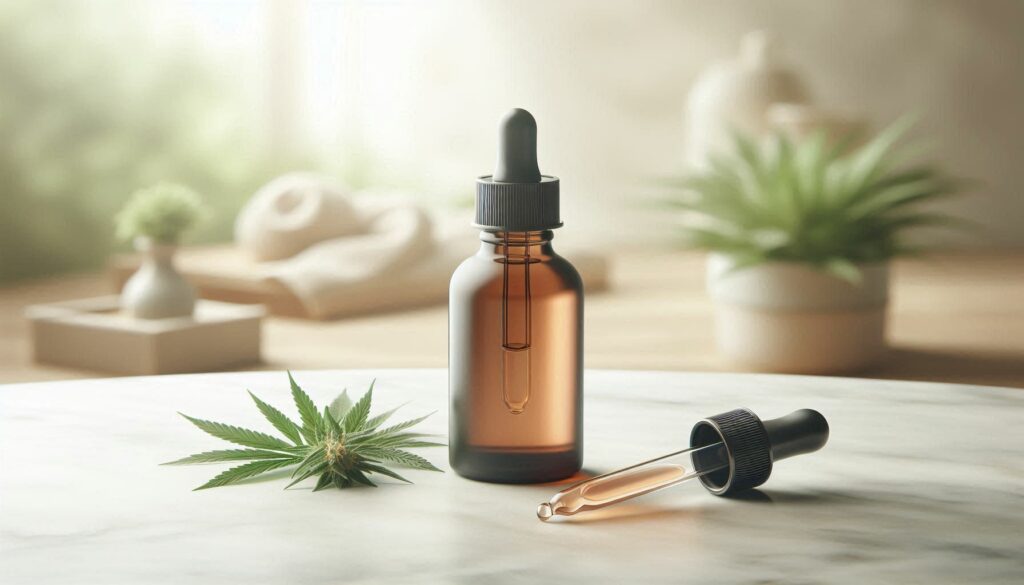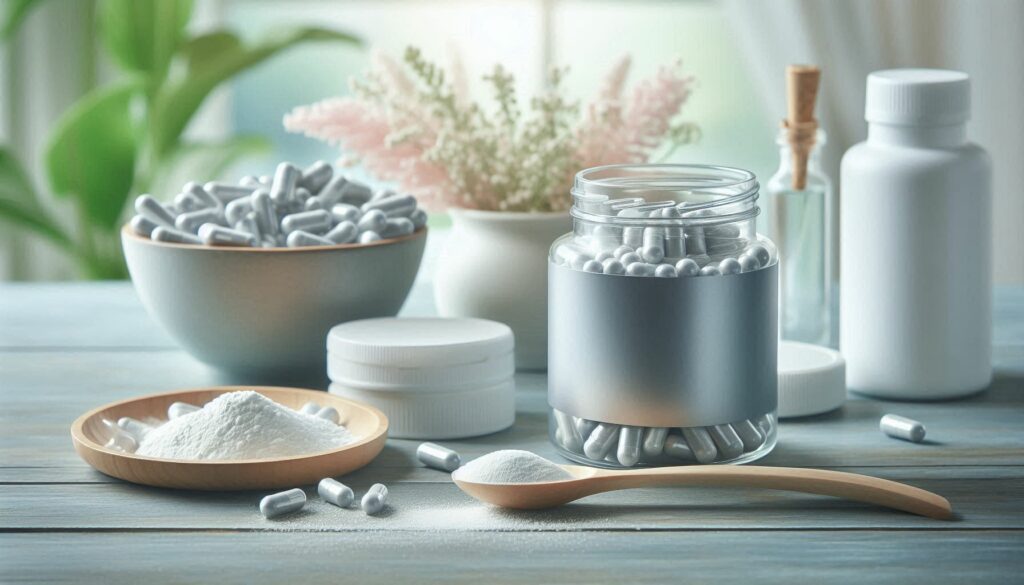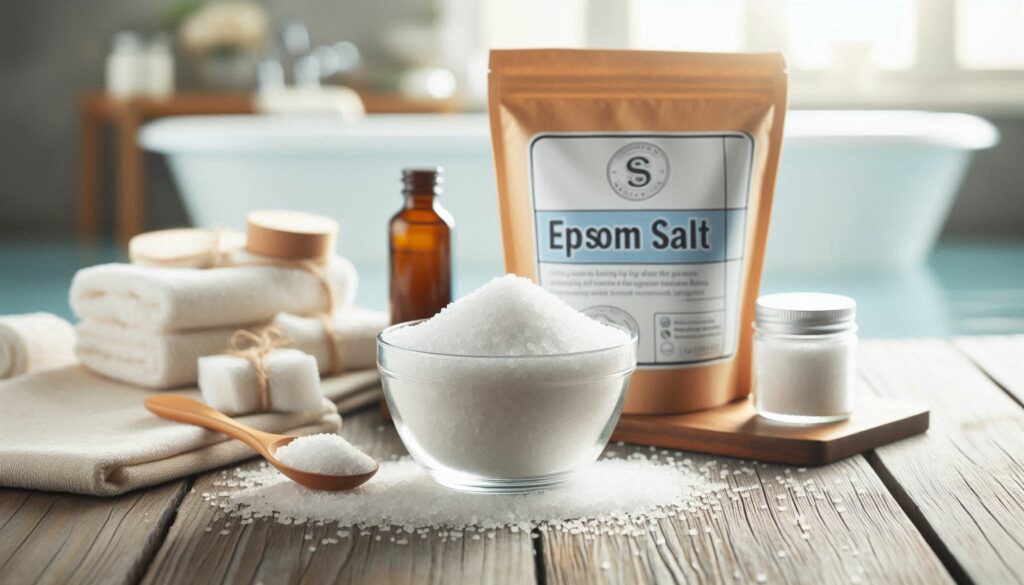10 Natural Muscle Relaxants Every Athlete Needs: Simple & Effective Solutions

Key Highlights
- Natural muscle relaxants offer athletes drug-free ways to alleviate pain and support recovery.
- These natural remedies often work by reducing inflammation, promoting blood flow, and calming the nervous system.
- Options include dietary changes, topical applications, and oral supplements.
- Consulting a healthcare professional is advised before starting any new supplement regimen.
- Combining natural muscle relaxants with other healthy habits like proper sleep and hydration can optimize muscle recovery.
Introduction
Many athletes and active people choose natural muscle relaxers to help with sore muscles and get pain relief. With these natural options, one can ease muscle tension, lower inflammation, and support recovery. As a result, they become useful tools for improving athletic performance. This guide will look at ten of the best natural muscle relaxers.
10 Effective Natural Muscle Relaxants Every Athlete Should Know
Besides the usual treatments, many natural ways can help with muscle relaxation, pain relief, and improving recovery. Along with using topical products, adding specific foods to their diets allows athletes to discover different options. Let’s go over ten easy-to-find natural muscle relaxants that athletes can fit right into their daily routines.

1. Arnica Montana for Reducing Inflammation and Soreness
Arnica Montana is a flowering plant that comes from Europe. People widely recognize it for being very effective against inflammation. Within it, you can find sesquiterpene lactones, which help in lowering inflammation and pain by working with the body’s natural inflammatory response. In many cases, arnica is used on the skin as a gel or cream. Also, it works especially well to lessen muscle soreness, swelling, and bruises. By applying arnica gel to the sore area after tough workouts or injuries, you can find natural ways to lessen discomfort and help speed up recovery.
2. Capsaicin from Chili Peppers for Pain Relief
Capsaicin, which is the substance that gives chili peppers their heat, is a very good natural pain reliever. When people put capsaicin cream on their skin, it works by reducing a neurotransmitter called substance P, which helps send pain messages to the brain. This reduction in substance P means less pain is felt, which is helpful for issues like muscle soreness, joint pain, and even arthritis. At the same time, it’s worth mentioning that capsaicin cream might cause a burning feeling when you first apply it, but this usually goes away with regular use.
3. CBD Oil for Muscle Recovery and Relaxation
CBD oil comes from the cannabis plant and is becoming a more popular choice for relieving muscle soreness and helping people relax. This oil works with the body’s endocannabinoid system which is important for managing pain, inflammation, and the central nervous system.

By providing powerful anti-inflammatory effects, CBD oil can lessen muscle soreness, inflammation, and pain. Furthermore, it helps to promote calmness and relaxation, which is useful for muscle recovery and easing muscle tension.
4. Curcumin to Combat Inflammation and Aid Recovery
Curcumin, which is the active ingredient in turmeric, acts as a strong anti-inflammatory agent. It fights inflammation and helps with muscle recovery. From studies, it appears that curcumin supplementation can lessen muscle damage, soreness, and inflammation after tough workouts. Through blocking inflammatory pathways and cutting down oxidative stress, curcumin supports muscle tissue health and promotes healing. By adding turmeric to your meals or taking curcumin supplements, athletes recovering from injuries or serious training can see great benefits.
5. Magnesium for Muscle Function and Relaxation

Magnesium is an important mineral that helps with muscle function, nerve signals, and relaxing muscles. Through its role, it helps control how muscles contract and relax properly. In situations where magnesium levels drop, muscle cramps, spasms, and tiredness might happen. For athletes, getting enough magnesium is necessary because it keeps their muscles working well, stops cramps, and helps with recovery afterward. To get magnesium, people can eat foods that are rich in it, like leafy green vegetables, almonds, and avocados, or they can take supplements to make sure they have enough.
6. Peppermint Oil for Soothing Muscle Spasms
Peppermint oil, because of its refreshing smell and cool feeling, serves as a natural muscle relaxer. For muscle spasms, the menthol in peppermint oil does create a calming impact by activating cold receptors in the skin. This, therefore, helps to relax muscle tension and lessen pain messages. With peppermint oil, people can apply it directly to their skin, but it’s better to mix it with something like coconut oil first for safe use. By applying peppermint oil to where it hurts, someone can relieve muscle cramps, lessen spasms, and encourage relaxation.
7. Tart Cherry Juice to Reduce Muscle Pain and Improve Sleep
Tart cherry juice is becoming well-known for its natural power to lessen muscle soreness and enhance sleep quality, which is crucial for muscle recovery. Thanks to its high levels of antioxidants and anti-inflammatory substances, tart cherry juice works to ease muscle damage and inflammation caused by exercise. Because of various studies, it has been found that drinking tart cherry juice can result in quicker recovery times, decreased muscle pain, and better sleep quality after tough workouts. By adding this juice to your meals, you can enjoy a tasty way to boost your muscle health.
8. Valerian Root for Relaxation and Muscle Spasm Relief
Valerian root is a well-known herbal remedy, famous for helping people relax and sleep better. With its compounds, it works on the brain’s GABA receptors. By doing this, it helps lower anxiety and encourages relaxation.

Through easing stress levels, valerian root helps to reduce muscle tension and relax involuntary spasms caused by stress. People can take valerian root in various forms, like capsules, tea, or tinctures, to enjoy these calming effects.
9. White Willow Bark as a Natural Pain Reliever
White willow bark, known for its natural salicin, has been used for many years as a way to relieve pain. With salicin acting in a way that is like aspirin, it helps to lessen pain and swelling. In particular, as a natural anti-inflammatory, white willow bark can help manage pain linked to osteoarthritis, back pain, and muscle soreness. For those looking for natural pain management, white willow bark comes in supplement form and may be a great choice for athletes.
10. Epsom Salt for Muscle Relaxation and Recovery
Epsom salt, which is also called magnesium sulfate, is well-known for helping muscles relax and recover. By soaking in an Epsom salt bath, magnesium can get absorbed through the skin.

This process helps to restore magnesium levels in the body. Because of this magnesium absorption, muscle cramps may become less intense, inflammation can be reduced, and muscle recovery is encouraged. After tough workouts or injuries, Epsom salt baths may be particularly useful for relieving pain and soreness.
Understanding How Natural Muscle Relaxants Work
Natural muscle relaxants function in different ways to help ease muscle tension and encourage relaxation. For instance, arnica and curcumin, have great anti-inflammatory effects, which lower swelling and pain. Magnesium and valerian roots also work on the nervous system to soothe nerve activity and lessen muscle tension.
The Role of Anti-inflammatory Compounds
Many natural muscle relaxants help by focusing on inflammation, which mainly causes muscle pain and soreness. Due to overworked or injured muscles, the body activates an inflammatory response. This results in swelling, pain, and less mobility. Because of compounds like curcumin, arnica, and tart cherry juice, there are powerful anti-inflammatories that directly fight this inflammatory response. By reducing inflammation, these natural remedies ease pain, shorten recovery time, and improve overall muscle health. Their ability to tackle muscle inflammation makes them important for handling both acute injuries and chronic pain conditions.
Natural Pain Relief Mechanisms
Natural muscle relaxants provide different ways to relieve pain while also reducing inflammation. With capsaicin, which comes from chili peppers, pain signals are interrupted, leading to better relief from muscle soreness and joint pain.

Peppermint oil works by stimulating cold receptors, which helps to ease pain and calm muscles. Meanwhile, white willow bark, known for its salicin content, offers pain relief like aspirin does, making it useful for issues such as back pain and osteoarthritis. These different ways of relieving pain show how natural muscle relaxants effectively tackle muscle discomfort.
Incorporating Natural Muscle Relaxants into Your Routine
Integrating natural muscle relaxants into a fitness routine can be done in several simple ways. Starting with magnesium-rich foods is a great option, and using a tart cherry juice supplement can also be beneficial. For quick pain relief, a topical arnica cream or soaking in an Epsom salt bath may help a lot. By consulting with a healthcare professional, you can get advice tailored to your needs about dosage and how to apply these remedies.
Tips for Using Essential Oils and Topicals
When you use essential oils like peppermint oil for muscle tightness, it’s important to dilute them first with a carrier oil, for example, coconut or almond oil, before applying them to your skin. Applying undiluted essential oils directly can cause skin irritation. For topical creams with ingredients like arnica, capsaicin, or CBD, you should gently massage them into the affected area until they are absorbed. It is also a good idea to do a patch test with any new topical product, to check for allergies or sensitivities you might have. By combining essential oils and topicals with a deep tissue massage, you can further enhance their ability to relieve muscle tension and promote relaxation.
Dietary Changes for Better Muscle Health
With other remedies, dietary changes can affect muscle health and recovery. By eating foods high in magnesium, like leafy greens, almonds, and avocados, you can help prevent muscle cramps and boost muscle function. Through regular intake of tart cherry juice, you can lower exercise-induced muscle soreness and improve recovery time. In a balanced diet filled with protein, healthy fats, and complex carbohydrates, you’ll find the building blocks needed for muscle repair and growth. By consuming enough amino acids and fatty acids from a balanced diet, you ensure the best health for your muscles.
Precautions and Considerations
Natural muscle relaxants can be a safe way to help, but it’s really important to be careful. It’s good to think about possible interactions or how a person might react differently. For some people, using specific herbs or essential oils could lead to allergic reactions or sensitivities. Starting with a low dose is recommended, and keeping an eye on any negative reactions is wise.
Understanding Potential Allergies and Side Effects
With any substance, there can be potential allergies and side effects when using natural muscle relaxants. For some individuals, allergies to specific herbs or essential oils may result in skin reactions or other types of allergic responses. So, it’s important to keep potential allergies in mind and do a patch test before trying out a new product. Although these relaxants are generally thought to be safe, some may interact with particular medications or cause mild side effects, like stomach upset or drowsiness.
When to Consult a Healthcare Professional
When using natural muscle relaxants, it is important to talk to a healthcare professional if you have ongoing muscle pain or personal health issues. A healthcare professional can give you tailored advice and figure out what is causing your muscle pain. This way, you will get the right treatment. Regarding potential interactions with medications you are already taking, they can help manage that and suggest the right dose too. It would help if you kept in mind that natural remedies shouldn’t take the place of prescription medicine or the guidance of a qualified healthcare professional, and following drug administration rules is always important.
Conclusion
Using these natural muscle relaxants in your routine can greatly help athletes. With remedies like Arnica Montana and Valerian Root, every option has special benefits that can lessen inflammation, ease muscles, and support recovery. Knowing how these natural relaxants function is important for getting the most out of them. To stay safe, always talk with healthcare professionals when needed, especially regarding allergies or possible side effects. By focusing on muscle health with these natural remedies, you can improve your performance and well-being as an athlete.
Frequently Asked Questions
What Are the Long-Term Benefits of Using Natural Muscle Relaxants?
The long-term advantages of natural muscle relaxants go further than just helping muscles. They might also enhance mental health by lowering stress levels, which can play a role in chronic pain. With natural muscle relaxants, people can manage pain in a way that doesn’t involve the side effects seen with standard medications.
How Often Can I Use Natural Muscle Relaxants Without Side Effects?
The frequency of using natural muscle relaxants relies on the type of remedy and how well a person can handle it. For instance, some can be taken daily, such as magnesium supplements. On the other hand, treatments for pain management that are in topical form should only be used when necessary.
Can These Natural Muscle Relaxants Interfere With Medications?
In order to stay safe, it’s important to talk to a healthcare professional if you are taking any prescription medicine. Since some natural muscle relaxants might have effects on certain medications, getting personalized advice is essential.
Are There Any Age Restrictions for Using Natural Muscle Relaxants?
Age limits for using natural muscle relaxants can differ based on the specific remedy. For some remedies, they are usually safe for most adults. On the other hand, others might not be right for children, pregnant women, or older adults who have certain health issues.
The Science Behind Muscle Recovery
To really get what helps muscles recover, athletes need to learn about the science behind it. In studies, especially systematic reviews, researchers have looked at how natural supplements affect muscle damage and recovery after tough workouts or injuries.
Importance of Sleep and Rest in Muscle Recovery
Getting enough sleep and rest is really important for the best muscle recovery. During sleep, the body fixes damaged tissues, lowers stress levels, and refills energy stores. Focusing on sleep is just as important as the physical training you do.
How Hydration Influences Muscle Health
Staying well-hydrated is really important for keeping your muscles healthy. Without enough water, you might experience muscle cramps, feel tired, and not perform as well. By making sure you drink enough water all day, particularly before, during, and after your workouts, you’re setting yourself up for success. Moreover, foods such as watermelon and brown rice can help you stay hydrated too.
The Impact of Stress on Muscle Tension and Recovery
Chronic stress can really affect muscle tension and the way muscles recover. During stress, the body produces hormones like cortisol that might cause muscle tension, pain, and slow recovery. In order to promote optimal muscle health, it’s important to address stress in natural ways. Some great methods include exercise, meditation, or just spending time in nature. By lowering stress levels, you can also help improve your overall well-being and reduce muscle tension.






